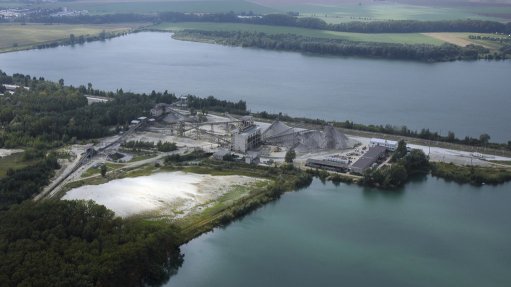
KPMG 2016 MINING REPORTING SURVEY The survey focused on estimates and judgments, nongenerally accepted accounting principles measures, risks, valuation and other reporting trends
The mining industry has continued to face significant uncertainty, volatility and pressure to contain costs over the past three years. This unpredictable business environment has given rise to a number of reporting trends geared towards providing stakeholders and users of mining companies’ financial statements with a more transparent view of a company’s position.
This is according to professional services firm KPMG’s 2016 Mining Reporting Survey, which was released last week. The results of the survey are based on the
reporting by 25 major mining companies worldwide, including Glencore, Rio Tinto, BHP Billiton and Anglo American, besides others.
Professional services firm KPMG global mining leader Jacques Erasmus told Mining Weekly that this year’s survey focused on five key areas, namely estimates and judgments, non-Generally Accepted Accounting Principles measures, risks, valuation and other reporting trends.
He highlighted that disclosures in these areas are becoming increasingly prevalent as companies try to provide stakeholders with supplemental information on various risks impacting on their businesses, and disclosure of the “critical judgments” and estimates management is required to make in managing and mitigating
those risks.
Erasmus remarked that, in preparing financial statements, management is required to exercise “significant judgment” and make estimates. He added that, while common across all industries, mining companies are required to make some unique and particularly complex estimates and judgments owing to the nature of their operations.
He added that many of these decisions require management to consider both financial and nonfinancial information in determining which to recognise in their financial statements.
Moreover, he pointed out that there were only two areas – impairment or reversal of impairment of nonfinancial assets and income taxes – that were disclosed by all the surveyed companies, as either an estimate, a judgment, or both.
Erasmus noted that there were a further three areas disclosed by companies: mineral reserves and resources, which were disclosed by 91% of surveyed companies; reclamation provisions, which were disclosed by 96% of surveyed companies; and depreciation, depletion and amortisation, which were disclosed by 87% of surveyed companies.
In this year’s survey, there was an increase in alternative forms of financing, such as streaming. Since KPMG’s 2014 survey, there had in fact been a fivefold increase (30% of all companies) in the number of companies which disclosed they had entered into streaming arrangements and that continued to enhance disclosures about such arrangements.
The survey pointed out, however, that the estimates and judgments disclosed by companies surveyed “varied significantly” in the nature and number of estimates and judgments disclosed and in the presentation of the financial statement disclosures.
“In this year’s survey, we separately analyse disclosure of areas of estimation from
those of management judgments,” Erasmus stated.
Mining Indaba and 2017 Outlook
The Investing in African Mining Indaba will run from February 6 to 9, in Cape Town, and Erasmus predicted that the major discussion points at the conference will centre on four main themes, namely global events, local developments, disinvestment versus consolidation and unleashing the power of data.
He elaborated that global events included softer commodity prices, Chinese commodities consumption levels and political developments such as Brexit and the new US administration’s attitude towards global trade.
Local developments would include clarification from Mineral Resources Minister Mosebenzi Zwane in his keynote address on finalisation of the new Mining Charter and key pieces of legislation, such as the Mineral and Petroleum Resources Development Act, and the short-term prognosis for addressing other political and economic challenges facing South Africa.
Erasmus explained that, during the Mining Indaba, there would be a great deal of discussion concerning whether major mining entities would continue to disinvest, whether mines would continue with a strategy of preservation versus expansion and how integration impacted on the operating models of mining houses.
“Mining companies are also seeking to harness data to improve their business performance along with implementing smart technologies to improve mine safety,” he stated, adding that improved data platforms would enable better decision-making.
Further, Erasmus told Mining Weekly that he was optimistic about commodity prices improving during the course of this year. “There will not be a massive commodity price boom, but I do believe there will be a gradual commodity price improvement across all major commodities and mining jurisdictions.”